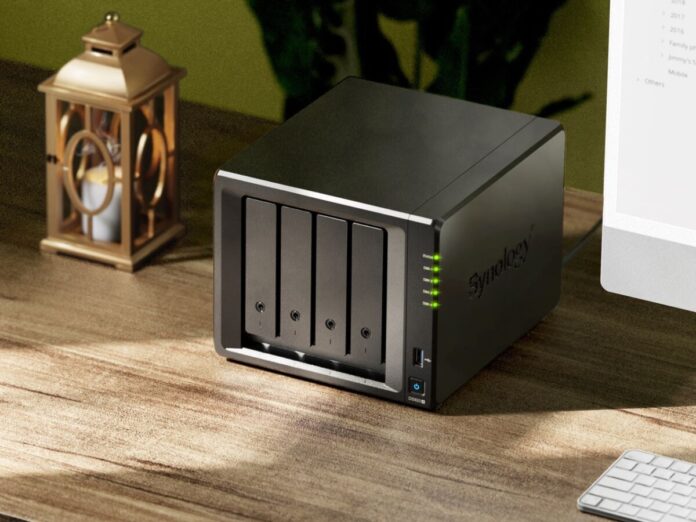NAS? You’ve heard someone mention the term sometime, right? But unless you’re an IT guy or a tech nerd, you think it’s not one of your immediate concerns. And this is where we need to sit down for some clarification, because if you want to keep your digital records safe and secure, a NAS will do it for you.
What is a NAS?
NAS stands for Network Attached Storage, which is basically a data storage device accessible on your network or through the internet. It allows you to store and access your data from anywhere, anytime, through a web browser or through an app.
Is it like an external drive? Yes, but much better! A NAS offers reliable, large-capacity additional storage similar to the familiar external drive, but better in that it features advanced functionalities through a user-friendly interface.
Why do I need a NAS?
Do you have countless work documents or school notes that need to be filed for future reference? Do you have terabytes worth of photos and videos documenting the most important as well as mundane moments of your daily life? And what about your music collection?
Do you like being able to quickly share files with family or colleagues, but want to be sure you can do this securely? What about the CCTV surveillance videos that you might need to check on some time in the future?
Having a NAS addresses all these concerns, and offers the following functionalities:
- Centralized data storage. Because of its large storage capacity and its accessibility via the internet, a NAS lets you store all your files on a single platform, and allows you to access these easily and even share them with others.
- Multimedia hub. You can store all your audio and video collections in the NAS for streaming on various platforms and devices.
- Photo gallery. You can preserve your memories by creating albums on the NAS, which you can share securely with passwords and access permissions.
- PC and other endpoint devices protection. A NAS lets you back up data from your computer, tablet, or smartphone so you can easily restore systems and files. This gives you an extra layer of protection in case you accidentally delete or lose the data.
- Surveillance system. Your CCTV surveillance system can be linked to store videos on the NAS so you can access them as needed.
What makes NAS a better option?
There are a number of compelling reasons why a NAS is better than the traditional storage options like external drives, or even cloud storage options like Dropbox, Google Drive, iCloud, and the like.
First, NAS devices run on an operating system designed to help you manage the data and services on your NAS through a streamlined and intuitive interface.
Second, you get license-free software applications that give you powerful data management tools for easy backup, sharing, etc., without incurring any additional costs.
Finally, you have peace of mind with the security and data privacy features that come as standard for most NAS devices. For instance, some vendors offer solutions to instantly detect software vulnerabilities so a fix can be quickly released to ensure that your data is not compromised.
At the same time, with RAID (Redundant Array of Independent Disks) data storage technology, NAS lets you combine one or more drives into a single storage unit for better efficiency and data security. RAID storage spreads or replicates your data across multiple drives to protect against drive failure, data loss, and downtime. You can determine the level of data redundancy vis-a-vis storage capacity and speed performance.
There are different RAID types, depending on your budget and level of protection needed. For example, a RAID1 (Mirrored) setup will require at least 2 drives, with 50% usable storage capacity. This offers maximum security with improved read and medium write speed. You can also choose RAID5 (1-disk redundancy) or RAID6 (2-disk redundancy), but note that your preferred RAID setup will impact your drive capacity as well as read/write speeds.
How do I choose the right NAS?
There are several considerations to help you choose the NAS that matches your needs and budget.
Estimate storage requirements. Sum up all the total memory your files are currently consuming across your PCs, tablets, smartphones, and cloud accounts to estimate your current storage consumption. Multiply this by 1.2 per year, which is the average annual data growth rate. Forecast your needs for the next 2-3 years.
Select the number of bays. Based on your estimated storage requirements, you can determine the number of bays you need and the hard drive capacity for each.
Select series and model. First-time NAS users who want to consolidate their files into their own private cloud with simple management and sharing options may consider some entry-level NAS like those offered by Synology. Over the years, we’ve been able to test some of their consumer products, and do recommend these for their reliability and ease of use. Check out our latest review on the Synology DS220j, a compact 2-bay NAS that’s perfect for digital pack rats.
With each passing year, we accumulate more and more data — documents, records, snapshots, videos, etc. — that we simply cannot do without. In particular, with the move to a more sustainable and paperless digital society, we need to ensure that important records are protected and kept secure. More and more, we are replacing printed hard copies with digital copies, such that ensuring data integrity and secure storage should be a priority for everyone.
Synology offers NAS devices backed by software solutions that could make our digital lives easier and more secure — check out which product will best serve your needs by clicking on this link.
